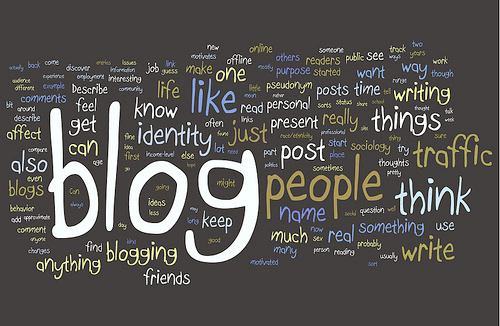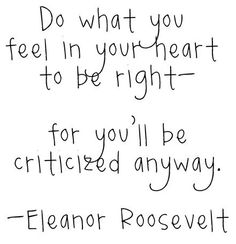~The Autobiography of Davy Crockett
Speaking of autobiographies and honorable men and women, MEdia Dragons are poor again as smart data hackers stole $A100 million worth of our easily earned bitcoins ...
Buff and busted: spike in arrests and seizures for illegal steroids:
Australia's pursuit of the perfect pecs, abs and biceps has led to an explosion in the number of (heroin drug supply) arrests and seizures for illegal steroids. ACIC spike in seizures
"In his attempts to answer these questions, Dennis Cooper has submitted numerous requests for information via the channels that Google has put in place, but all of them have been ignored. He has worked with a Google employee, who attempted to launch an internal investigation on the writer’s behalf, but found herself stonewalled and unable to help.” The New Yorker
Life is a Cabaret: voltaire a night-out at history's wildest nightclub
The New Ruling Class Hedgehog Review
In conversation with Tyler Cowen
It was a great honor and pleasure to be in conversation with Tyler Cowen -- and to go book-shopping with him at New York's Strand Bookstore (video of which should be available next week ...) -- and you can now watch the full conversation, read the transcript (where you can also just listen to the conversation) -- and you can also watch me answer Marginal Revolution-reader-questions which Tyler didn't get to.
What MEdiaDragons collect - Old Memories:
This possibly gated but excellent nonetheless piece explaing how MEdiaDragons fell in love with blogs is from the FT, here is one excerpt:
A few weeks ago was typical. After some time off, my feed aggregator displayed 794 blog posts, 56 of them foolishly filed into the “must read” folder. Here lay a polemic blasting the FT for worrying about China’s debts; there a graph strewn post about US inflation expectations. Virtuoso “infovore” Tyler Cowen had dug up a fascinating passage on how China runs monetary policy. Another polymath, Brad DeLong (former Clinton staffer and tireless scourge of rightwing bunkum), had spent some minutes producing a few hundred words on “the intellectual role of the economist in public life”, throwing out references to pre-Christian philosopher Hermippos of Smyrna as a warm-up. Another writer, an anonymous retired trader with a bad back, explained how quantitative easing exposes central bankers as a bunch of bungling frauds. It felt like his fifth such post in a week.
And so on…And yet in 10 years of trying to make sense of the economic world around me, I have found nothing as reliably good as the blogosphere.
And so on! How can you not love an article that refers to an “omni-reading angel in the celestial library”?
*The joy and anxiety of socialising when you're an introvert
Calvin H. Johnson (Texas), Where's the Rest of Me?: Ryan's Republican Wish List, 152 Tax Notes 105 (July 4, 2016):
House Speaker Paul D. Ryan, R-Wis., has released a wish list of what Republican House members would like to see in a tax system in the form of a plan that moves toward a cash flow consumption tax.
Mark Carrigan (University of Warwick), Social Media for Academics (Sage 2016):
*The joy and anxiety of socialising when you're an introvert
Calvin H. Johnson (Texas), Where's the Rest of Me?: Ryan's Republican Wish List, 152 Tax Notes 105 (July 4, 2016):
House Speaker Paul D. Ryan, R-Wis., has released a wish list of what Republican House members would like to see in a tax system in the form of a plan that moves toward a cash flow consumption tax.
Mark Carrigan (University of Warwick), Social Media for Academics (Sage 2016):
Social
media is an increasingly important part of academic life that can be a
fantastic medium for promoting your work, networking with colleagues and
for demonstrating impact. However, alongside the opportunities it also
poses challenging questions about how to engage online, and how to
represent yourself professionally.
Herald Scotland. Note that there’s an essay mill in the US.
Hat tip to one and all journos and academos for creating this tool: “Dark money” just got a bit of light shined on it, thanks to a new search tool unveiled today by the Center for Public Integrity. The Center downloaded 850,000 forms from about 250,000 nonprofits that were recently released in electronic format by the IRS; we extracted the grant data and made $170 billion reported over five years searchable. New search tool traces sources of ‘dark money’
"The Top 5 Law Blogs All Lawyers Should Be Reading": Bryan Koenig of Law360.com has an article (subscription required for full access) today that begins, "Attorneys everywhere are reading blogs for meaningful discussion on major events in their profession, and while exact interests vary by practice area, a number of blogs top the list of favorites for those looking to follow major happenings in the legal community."
Keith Lee, Could Your Social Media Posts Prevent You From Becoming A Lawyer?:
The
July bar exam is coming up next week and is on the minds of many law
school graduates. ... But after law school, and before the bar exam,
there is one other hurdle law school graduates must clear on their path
to becoming a licensed attorney – they must pass a Character and Fitness
Evaluation (CFE). ...
[Otion]
Gjini was denied admission to Bar of Maryland. [He is not] a
sympathetic applicant. Gjini was mostly denied because he had frequent
DUIs and did not disclose that he was facing a charge of violating his
probation until the charge was found by the Maryland Character Committee
(MCC) and brought up during his hearing.
But
also at issue when Gjini appeared before the MCC, were his online
postings. During law school, Gjini, like almost every law school
student, frequently commented on various social media services. During
his examination, the MCC came across Gjini’s public accounts and found
the following comments:
Czech Out: Welcome new "How Appealing" readers: Although nearly 99 percent of "How Appealing" readers who I meet on my various blog-related travels tell me that they have been reading this blog since shortly after its inception in May 2002, it appears that this blog's inclusion on Law360.com's list (subscription required for full access) of the top-five must-read law blogs has produced some new visitors in recent days.
Indeed, one sure sign of that arrived yesterday when an administrative assistant at a Baltimore law firm sent me the email addresses of three lawyers at the law firm who wished to be added to this blog's mailing list. Many blogs have mailing lists, but "How Appealing" is not one of them.
Here's a guide for new (or not so new) visitors to this blog. In lieu of a mailing list, you can follow this blog on Twitter via this link. Thanks to all of this blog's new Law360.com-based visitors in recent days who have already figured that out on their own.
This blog does not permit readers to append comments to posts, nor have comments ever been enabled at any point over this blog's long history. If you have a comment, question, correction, suggestion, link, resource, or other communication that you would like to send to the author of this blog -- meaning me -- you can reach me directly 24/7 at this blog's email address.
Lastly, you can access every single post that has ever appeared at "How Appealing" via this blog's archives at this link
How to focus on the people in every story
Uber, one of the most prominent faces of the sharing economy, has not always been welcome in the EU. Similarly, Airbnb has experienced legal, regulatory, and public policy resistance across European countries. However, two recent developments in the EU suggest that, on balance, Europe might be staking out a regulatory path for the sharing economy that is intended to demonstrate the region’s support for the new sector. . . . Continue reading
(1) Here are six must-read fact checks from Trump's RNC acceptance speech and a Twitter-analysis of his factuality. (2) More breaking-news fakes, from Munich here and here. (3) You can watch a replay of the Google hangout on fact-checking fever with Chequeado's Laura Zommer and Colombiacheck's Fabio Posada here. (4) PolitiFact is already thinking about tracking the next President's promises.
Those popular fake-news shows can be so confusing. If it's funny, is it false? Or is there really some truth in humor? PunditFact decided to fact-check a recent "Funny or Die" segment on Republican presidential candidate Donald Trump's wardrobe. See what they found
Google, Mississippi Attorney General Jim Hood appear to have settled their bitter conflict [ArsTechnica, earlier]
“If it’s perceived by the victim, then it is” — adviser to London police on online insults as hate crime [Express] “Nottinghamshire police to count wolf-whistling in street as a hate crime” [Guardian, quoting three backers and no critics of idea]
What does that cliché mean, anyway? Build your language muscles by finding out
Last week's issue of The Economist had three letters to the editor on executive compensation that seemed noteworthy:
Regarding executive pay (“Neither rigged nor fair”, June 25th) what harm would come from limiting the pay of chief executives to, say, 40 times that of the average worker? Do we honestly think there would be a tragic exodus of managerial talent? Such limits would help restore workers’ faith in the economic system, which, as Joseph Stiglitz argued in “The Price of Inequality”, would increase productivity. A ratio linked to workers’ pay would also help bosses understand, and even increase, the pay of the rank and file.
PETER COLBY
San Francisco via Pofessor Bainbridge Blogger and Wine Connoisseur
When Does ‘Fair Use’ Become Unfair? Copyright law allows journalists to quote just enough — but not too much. Who draws the line? / By Paul Raeburn
“In the United States, copyright protection for authors and other creators comes with the explicit understanding that others have “the right to use copyrighted material without permissions or payment under some circumstances — especially when the cultural or social benefits or the use are predominant.” That seems straightforward enough. But it has puzzled and worried journalists for decades…Peter Jaszi and Pat Aufderheide at American University have written a “Set of Principles in Fair Use For Journalism,” which covers most of the questions likely to come up in a newsroom or at a freelancer’s desk…”
PrawfsBlawg: Google Scholar Law Review Rankings — 2016, by Bryce C. Newell (Tilburg University):
Includes
only flagship/general law reviews at ABA accredited schools (I think
I've captured (almost) all of these, but let me know if I've missed
any). Rankings are calculated based on the average of Google's two scores (h5-index and h5-median), as proposed here
by Robert Anderson. The final column shows how much a journal's rank
has changed in 2016 versus last year's ranking (0 indicates no change, a
positive number indicates the ranking has gone up in 2016, while a
negative number indicates a drop in ranking in 2016).




